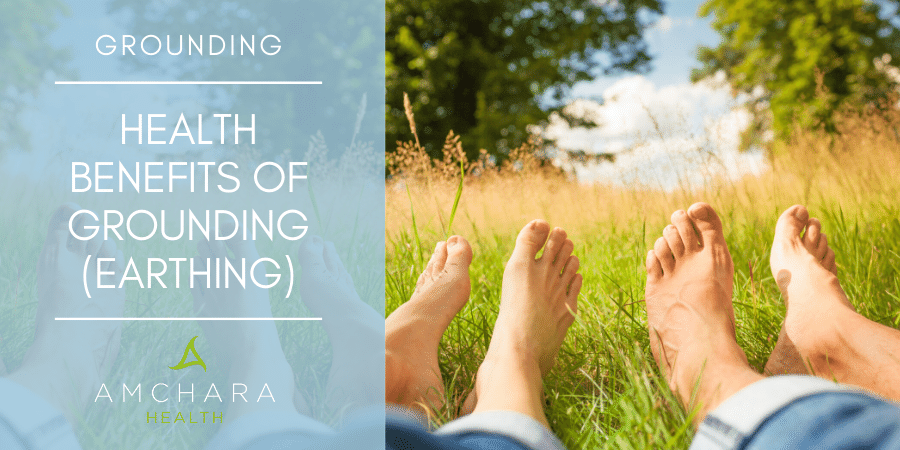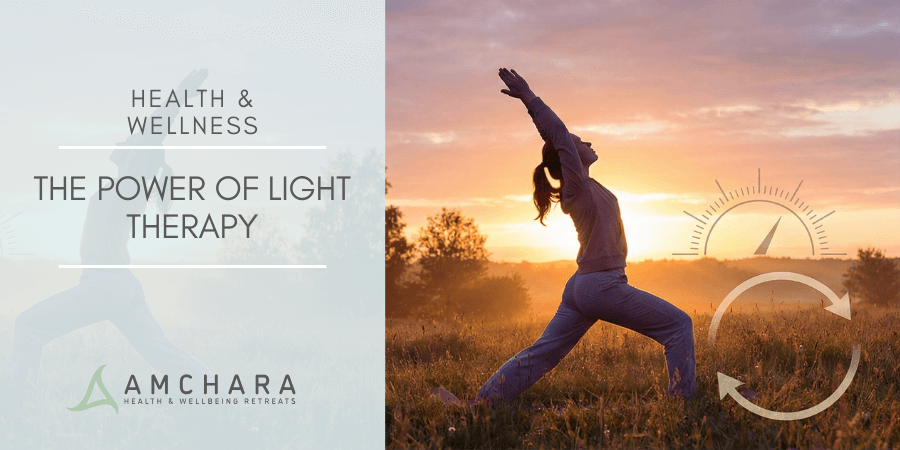Topics Covered in this article:
Does walking barefoot make you feel more energised and grounded?
It seems there may be a scientific basis for the concept of grounding and in this article we’ll have a look at the evidence.
What is grounding?
Grounding, often called earthing, is a technique electrically connecting us with the earth.
Traditionally, we would have walked barefoot and slept on the ground. Over the millennia, we’ve lost this contact with the earth.
Our electrical earth
The surface of the earth, in other words the ground on which we stand and live our lives, possesses a supply of electrons which are constantly being renewed.
An electron is a particle which carries electricity and has a negative charge. So the surface of the earth is electrically charged. The earth’s negative potential is maintained by means of electrons which are replenished from the atmosphere.
Your electrical body
Millions of electrical reactions are occurring every second inside your body. We are all influenced by the earth’s negative electrical charge because electrons are constantly being transferred from the earth to our bodies.
In other words, when your skin comes into contact with the earth’s surface, the electrical potential of your body becomes equalised with that of the earth. This equalising of potential is what is known as grounding.
The electrical environment inside our houses and offices is very different to that experienced outdoors, due to electromagnetic fields emitted by devices and electrical appliances.
Any power source or electrical field will affect the body if you are not grounded. This means the electrical charge within your body won’t be constant but instead will be affected by electrical fluctuations in the environment. As a result, electrical gradients can build up on cell membranes, and these can affect biochemical processes in the body.
For example, enzymes, necessary for biological reactions to occur, all work in their own specific environment. They prefer a particular acidity or alkalinity in which to function best. Any alterations in electrical charge will alter the pH and therefore enzyme activity.
Electrical charges also play a crucial role in the communication of cells such as nerve cells, and fluctuations can lead to neurones firing when they shouldn’t.
Health benefits of grounding
At Amchara we like to bring you evidence-based information, so let’s have a look at the health effects of grounding, which have been investigated by science.
- Sleep
At least 30% of the UK population suffer from severe sleeping problems. Most people sleep in close proximity to electrical wiring and electrical devices such as alarm clocks. We know electro-magnetic fields associated with modern living can disrupt production of the sleep hormone melatonin.
Grounding at night has been reported to improve sleep, as well as chronic muscle and joint pain.
- Stress
In one study, subjects suffering from sleep issues, pain and stress were grounded during the night. Samples of their stress hormone were collected every four hours before the study started and after six weeks of grounding.
The stress hormone cortisol should be at its lowest around midnight and highest in the morning. Study participants at the outset of the study had wide variations in their cortisol levels, which typically occur as a result of ongoing stress.
After grounding, these patterns became closer to normal. In particular, night-time cortisol levels decreased. An improvement in sleep, pain and stress was concurrently reported, and participants’ energy also improved (1).
Researchers also discovered grounding decreased skin conductance within a few seconds, a reaction which immediately increased again when the participants were ungrounded (2).
The electrical conductivity of the skin varies according to stress. Increases in the ability of the skin to conduct electricity are an indicator of the body’s reaction to stressful stimuli. A decrease in skin conductivity suggests activation of the parasympathetic nervous system, the body’s rest and digest mode, along with a deactivation of the sympathetic nervous system, the part of the nervous system which prepares the body to react to stress.
The natural variation of your heart rate, known as heat rate variability or HRV, can also indicate to what extent the body is in sympathetic or parasympathetic mode. A reduced HRV is indicative of a heightened stress response.
One study found grounding produced significant increases in HRV, more than would be expected simply from relaxation alone (3).
- Immune system support and inflammation
Another study examined muscle soreness, induced by carrying heavy weights. Grounding was found to decrease the amount of white blood cells released in response to the muscle soreness, resulting in reduced inflammation as well as less pain experienced as a result of the task (4).
During the course of metabolism, your body is constantly producing reactive free radicals which can damage your tissues. They lack an electron, making them electrically charged. Antioxidants are needed to neutralise these free radicals and prevent them causing damage and ageing.
One theory believes the free electrons that can be absorbed into the body when you come into direct contact with the earth can neutralise free radicals. In other words, they can act as antioxidants and in this way inflammation will be reduced.
- Blood sugar balance
Grounding has been found to decrease fasting glucose among people with Type 2 diabetes (5).
- Thyroid health
One night of grounding has been found to increase levels of free thyroxine. In fact, it’s been observed that many people taking thyroid medication experience symptoms of hyperthyroidism after participating in grounding, which disappear when their medication is reduced, suggesting thyroid function improves with grounding.
- Cardiovascular health
Blood cells all have an electric potential, which has been called their zeta potential and is related to the number of negative charges on the cell’s surface. The higher the zeta potential, the more the red blood cell can repel other red blood cells. In other words, they are less likely to clump together and coagulate.
To encourage less blood viscosity, important for cardiovascular health, you want a high zeta potential of your red blood cells.
Grounding has been found to increase the zeta potential and prevent red blood cells clumping together (6).
Another study over several months on patients with hypertension found decreases of an average of 14% in blood pressure after grounding (7).
Most of these studies are small and rely on subjective measurements, for example of pain experienced. However, many of the studies employed placebo techniques, whereby some of the participants thought they were being grounded but were not. The placebo technique is employed to rule out any effect of expectation of a positive outcome on the part of the volunteers, which could influence the results.
The results of studies carried out so far are intriguing and it would be interesting to find out more about our connection with the electrical earth on which we live.
Grounding in practice
One of the simplest ways to experience grounding is to walk barefoot. Any surface – grass, earth, rocks, mud or in water – is fine, as long as you allow your skin to touch the earth’s surface.
It’s not always convenient to wander around barefoot, but doing so when you can will expose you to the benefits. Even as little as 30-40 minutes per day of grounding has been shown to significantly reduce pain and stress. Best of all it’s completely free.
Devices are available which can be used in your bed to transfer energy from the ground into your body. They do this by connecting a metal rod to the ground which then connects to a mat, sheet or a patch.
Takeaway
A wonderful location in which to practice grounding is at one of our relaxing retreats, where you will be surrounded by calmness and nature. Activities such as yoga incorporate grounding poses to improve the connection between your body and the earth.
If you are finding it hard to cope with stress and would like 1-2-1 support, a consultation with an Amchara Personalised Health practitioner can support you every step of the way.
Did you find this article useful?
We’d love to hear your thoughts.
Read this next:




